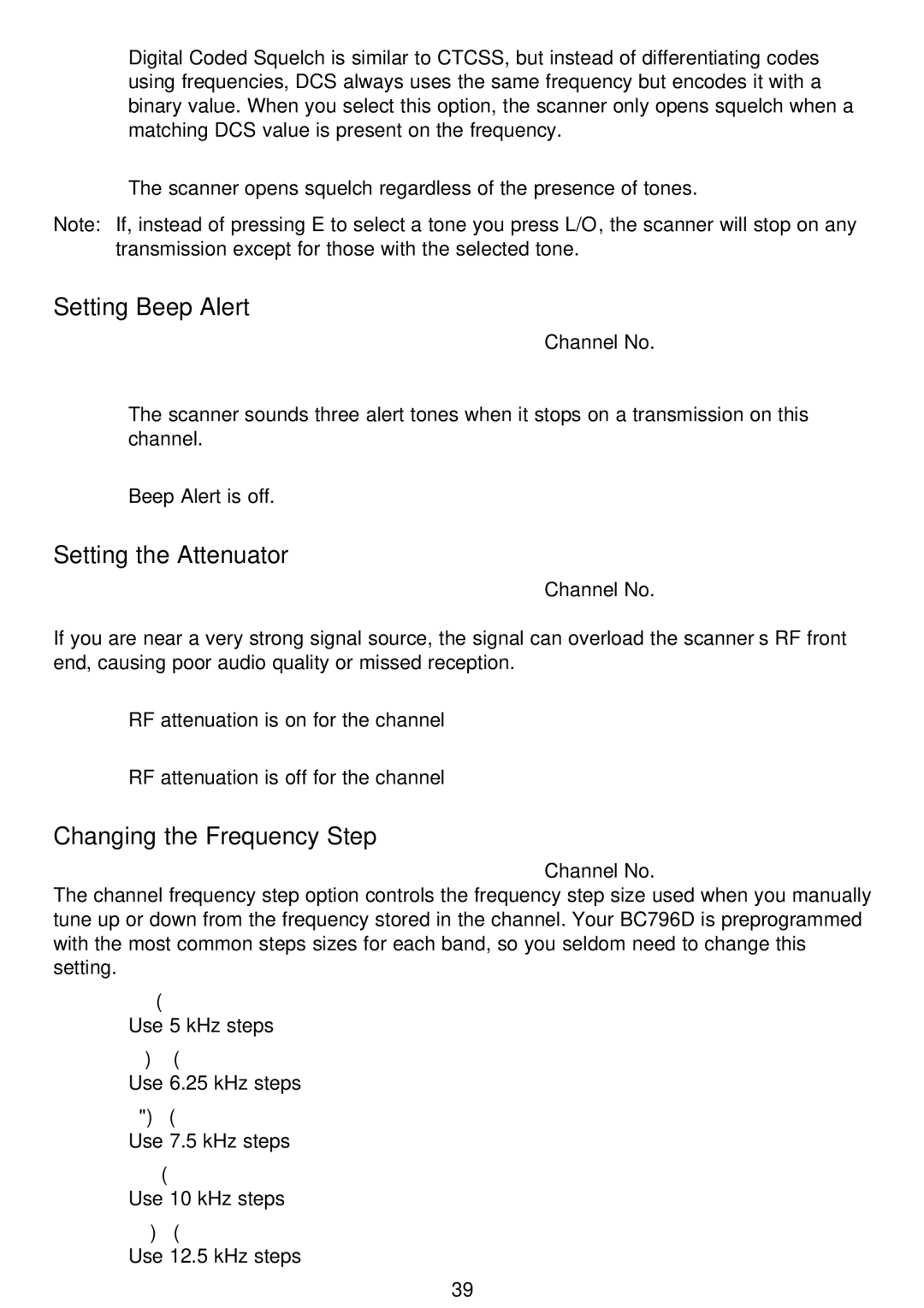Digital Coded Squelch is similar to CTCSS, but instead of differentiating codes using frequencies, DCS always uses the same frequency but encodes it with a binary value. When you select this option, the scanner only opens squelch when a matching DCS value is present on the frequency.
3:OFF
The scanner opens squelch regardless of the presence of tones.
Note: If, instead of pressing E to select a tone you press L/O, the scanner will stop on any transmission except for those with the selected tone.
Setting Beep Alert
2:SCAN OPTION → 1:CONVENTIONAL → Channel No. → 4:BEEP
ALERT
1:ON
The scanner sounds three alert tones when it stops on a transmission on this channel.
2:OFF
Beep Alert is off.
Setting the Attenuator
2:SCAN OPTION → 1:CONVENTIONAL → Channel No. →
5:ATTENUATOR
If you are near a very strong signal source, the signal can overload the scanner’s RF front end, causing poor audio quality or missed reception.
1:ON
RF attenuation is on for the channel
2:OFF
RF attenuation is off for the channel
Changing the Frequency Step
2:SCAN OPTION → 1:CONVENTIONAL → Channel No. → 6:STEPS
The channel frequency step option controls the frequency step size used when you manually tune up or down from the frequency stored in the channel. Your BC796D is preprogrammed with the most common steps sizes for each band, so you seldom need to change this setting.
1:5KHz
Use 5 kHz steps
2:6.25KHz
Use 6.25 kHz steps
3:7.5KHz
Use 7.5 kHz steps
4:10KHz
Use 10 kHz steps
5:12.5KHz
Use 12.5 kHz steps
39
